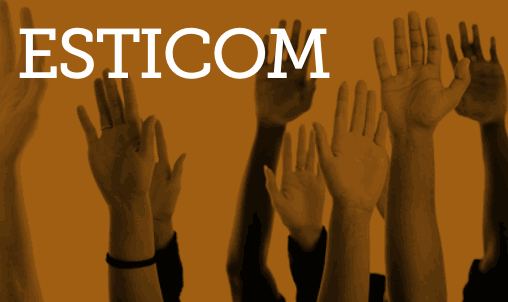The ESTICOM training material (Face-to-face trainings and E-Learning) can be accessed and downloaded for educational use free of charge.
It was developed in the scope of the ESTICOM project (www.esticom.eu) under the service contract 2015 71 01 with The Consumers, Health, Agriculture and Food Executive Agency (Chafea), acting under powers delegated by the Commission of the European Union.
The training material is owned by the European Commission (copyright/ownership).
The authorship lies with Terrence Higgins Trust (THT), London, England and Deutsche Aidshilfe (DAH), Berlin, Germany jointly.
Any enquiries or questions regarding the use of the ESTICOM training material or other topics in this context should be sent to: contact@msm-trainings.org
For evaluation and quality assurance reasons the authors of the ESTICOM training material would welcome feedback of the use and adaptions/amendments or suggestions for future development (including adapted training material). Please send this feedback and/or adapted material to: contact@msm-trainings.org.
By downloading this material or accessing the E-Learning modules you are indicating that you agree to and accept the Download Agreement which forms the basis for any and every use of this Training Material:
- The Recipient may not use the data in any way that undermines the European Union’s fundamental values — respect for human dignity and human rights, freedom, democracy, equality and the rule of law — nor in opposition to the Lisboa Treaty (2009, article 19), which seeks to combat discrimination based on sex, racial or ethnic origin, religion or belief, disability, age or sexual orientation.
- This training course belongs to the European Commission (© European Union, 2019) and therefore reuse is subject to the Commission’s re-using policy (2011/833/EU; http://bit.ly/309g99N ). In short, this means that the training course can be reused provided the source is acknowledged. The relevant copyright notice is already included in the slides and trainers should take care to ensure that this is always included in case of adaptation of the material or the slides. The suggested citation for the use of the training material is: “Terrence Higgins Trust / Deutsche Aidshilfe: ESTICOM Trainings for CHW in Europe © European Union, 2019”
- The Recipient agrees that the training material will only be used for educational use. It is public asset, open licence, free of charge and might be used according to this download agreement and the use determined in the material, namely to train Community Health Worker working with MSM without further permission.
- The aim of the ESTICOM training material is to be used in different contexts and settings, nationally and internationally and amends existing training programmes. Therefore, the training material or parts of it can be integrated in or amended by existing training programmes and materials. The reference to the source (see point 3) must always be guaranteed.
- The Recipient can adapt the training material according to the target audience and to the training objectives by selecting and combining certain segments of the different modules. It is recommended to consider the guidance provided in the document when selecting the appropriate segments. All adaptions have to follow the approach of the ESTICOM training material and may not contradict its basics, content and aim.
- For the access and/or download no personal data will be collected or stored. The microsite uses Tracking Tool to track the access. The following data will be collected according to GDPR rules: TRACKED ACTIONS TO BE FILLED IN ONCE ANALYTICS IS INSTALLED
- The European Commission, nor THT or DAH can be held responsible for the use of the ESTICOM training material.

